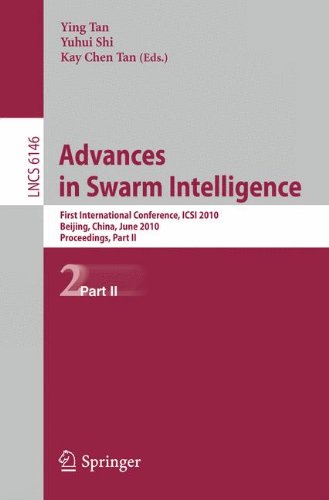

Most ebook files are in PDF format, so you can easily read them using various software such as Foxit Reader or directly on the Google Chrome browser.
Some ebook files are released by publishers in other formats such as .awz, .mobi, .epub, .fb2, etc. You may need to install specific software to read these formats on mobile/PC, such as Calibre.
Please read the tutorial at this link: https://ebookbell.com/faq
We offer FREE conversion to the popular formats you request; however, this may take some time. Therefore, right after payment, please email us, and we will try to provide the service as quickly as possible.
For some exceptional file formats or broken links (if any), please refrain from opening any disputes. Instead, email us first, and we will try to assist within a maximum of 6 hours.
EbookBell Team

5.0
50 reviewsThis book and its companion volume, LNCS vols. 6145 and 6146, constitute the proceedings of the International Conference on Swarm Intelligence (ICSI 2010) held in Beijing, the capital of China, during June 12-15, 2010. ICSI 2010 was the ?rst gathering in the world for researchers working on all aspects of swarm intelligence, and providedan academic forum for the participants to disseminate theirnewresearch?ndingsanddiscussemergingareasofresearch.Italsocreated a stimulating environment for the participants to interact and exchange inf- mation on future challenges and opportunities of swarm intelligence research. ICSI 2010 received 394 submissions from about 1241 authors in 22 countries and regions (Australia, Belgium, Brazil, Canada, China, Cyprus, Hong Kong, Hungary, India, Islamic Republic of Iran, Japan, Jordan, Republic of Korea, Malaysia, Mexico, Norway, Pakistan, South Africa, Chinese Taiwan, UK, USA, Vietnam) across six continents (Asia, Europe, North America, South America, Africa, and Oceania). Each submission was reviewed by at least three reviewers. Based on rigorous reviews by the Program Committee members and reviewers, 185 high-quality papers were selected for publication in the proceedings with the acceptance rate of 46.9%. The papers are organized in 25 cohesive sections covering all major topics of swarm intelligence research and development.